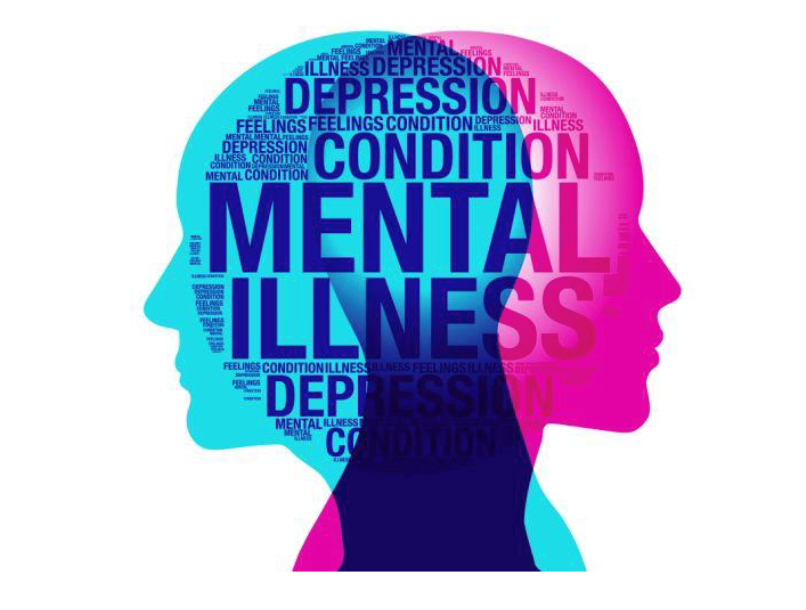Checking Out the Connection Between Nutrition and Mental Health Renovation
The ramifications of our nutritional choices on psychological well-being have actually been progressively identified by health experts and researchers alike. As we navigate the complex landscape of contemporary way of livings, uncovering the nuanced connection between nutrition and psychological wellness renovation may hold the trick to unlocking a much deeper understanding of our emotional and cognitive durability.
Impact of Food on State Of Mind
The connection between dietary choices and mood regulation is an important element of understanding the impact of food on psychological health. Research has shown that certain foods can affect neurotransmitter activity, influencing state of mind and emotions. For example, foods rich in omega-3 fatty acids, such as fatty fish, walnuts, and flaxseeds, have actually been linked to lower rates of clinical depression and improved state of mind law.
In addition, complicated carbs found in whole grains, fruits, and vegetables can help manage blood sugar levels, which subsequently can have a favorable effect on state of mind stability. On the other hand, diets high in refined foods, sugar, and saturated fats have actually been connected with an enhanced risk of clinical depression and state of mind problems.
Furthermore, the gut-brain connection plays a significant duty in state of mind guideline. The digestive tract microbiome, affected by the foods we eat, can communicate with the brain with the gut-brain axis, affecting mood, stress levels, and overall mental well-being. Making nutritious and mindful dietary options is important for maintaining a healthy and balanced mood.

Necessary Nutrients for Anxiousness

Moreover, the amino acid tryptophan, found in foods like turkey, eggs, and nuts, is a forerunner to serotonin manufacturing, a neurotransmitter recognized for its function in advertising feelings of peace and wellness. Vitamin B complicated, especially B6 and B12, are likewise vital for maintaining a healthy and balanced nerves and may help minimize anxiety symptoms.
Integrating these crucial nutrients right into a well-balanced diet regimen can have a positive influence on handling anxiety and improving overall mental health and wellness.
Dietary Techniques for Clinical Depression

One dietary technique for handling anxiety is concentrating on foods abundant in omega-3 fatty acids, such as fatty fish, flaxseeds, and walnuts. Omega-3 fatty acids have been connected to reducing swelling in the mind and boosting neurotransmitter function, which can positively affect state of mind. Furthermore, enhancing the intake of fruits, veggies, whole grains, and lean proteins while minimizing the consumption of refined sugars and foods may help in reducing depressive signs.
In addition, maintaining adequate levels of vitamin D, either through sunshine exposure or supplements, is important for supporting psychological health and wellness. Vitamin D shortage has been linked with an enhanced threat of anxiety, making it important to guarantee sufficient intake of this nutrient. By integrating these dietary strategies, people might successfully complement traditional treatments for clinical depression and boost their overall well-being.
Gut-Brain Axis and Mental Wellness
Concentrating on the detailed link between the stomach system and mental wellness, the Gut-Brain Axis plays a crucial function in influencing cognitive features and emotional health. The Gut-Brain Axis is a bidirectional communication network in between the main nerves and the enteric nerve system, linking the psychological and cognitive centers of the brain with peripheral intestinal features. This axis is regulated by a detailed interplay of neural, immune, endocrine, and metabolic pathways.
Study recommends that the make-up of gut microbiota, the varied neighborhood of microorganisms staying in the gastrointestinal tract, can have an extensive effect on psychological health. Imbalances in intestine microbiota, called dysbiosis, have been related to problems such as depression, anxiety, and even neurodegenerative illness. The intestine microbiota plays an important duty in the production of natural chemicals like serotonin, which is essential for managing mood and emotional responses.
Keeping a healthy and balanced digestive tract microbiota with a well balanced diet plan rich in fiber, fermented foods, and probiotics is critical for supporting psychological wellness (Mental Health Services). Strategies aimed at enhancing the Gut-Brain Axis offer promising avenues for enhancing psychological health and cognitive function
Nutrition's Role in Cognitive Function
Given the significant impact of the Gut-Brain investigate this site Axis on psychological health, understanding how nourishment effects cognitive function comes to be vital in promoting total wellness. Nourishment additional resources plays a vital duty in cognitive function by offering important nutrients that sustain brain health and wellness and ideal performance.
Secret nutrients such as omega-3 fats, vitamins, anti-oxidants, and minerals are known to improve cognitive capacities, consisting of memory, emphasis, and analytic skills. Omega-3 fats, discovered in fatty fish like salmon and nuts, have actually been linked to boosted memory and cognitive feature. Antioxidants, plentiful in fruits and vegetables, help safeguard brain cells from damage triggered by cost-free radicals, hence maintaining cognitive function.
In addition, a well balanced diet regimen rich in whole grains, lean healthy proteins, fruits, and veggies can favorably impact cognitive feature by stabilizing blood sugar degrees and giving sustained power to the mind. On the other hand, diets high in refined foods, hydrogenated fats, and sugars have been related to cognitive decline and damaged brain feature. Making notified nutritional choices is essential for maintaining ideal cognitive function and overall mental health.
Conclusion
In final thought, the connection in between nutrition and mental wellness is diverse and complex. Understanding the connection between nourishment and psychological health and wellness enhancement is important for promoting overall health and dealing with psychological wellness issues.
The implications of our dietary choices on psychological wellness have actually been significantly identified by health and wellness professionals and researchers alike. As we browse the complicated landscape of contemporary way of lives, revealing the nuanced connection in between nutrition and mental health renovation might hold the trick to opening a much deeper understanding of our cognitive and psychological resilience.
Structure upon the vital nutrients that sustain psychological wellness, particularly in handling anxiousness disorders, the focus now changes in the direction of examining dietary strategies for resolving clinical depression.Focusing on the intricate link between the gastrointestinal system internet and psychological wellness, the Gut-Brain Axis plays a pivotal duty in affecting cognitive features and psychological well-being (Mental Health Services). Understanding the connection between nutrition and mental health and wellness enhancement is vital for promoting overall health and attending to psychological health and wellness issues